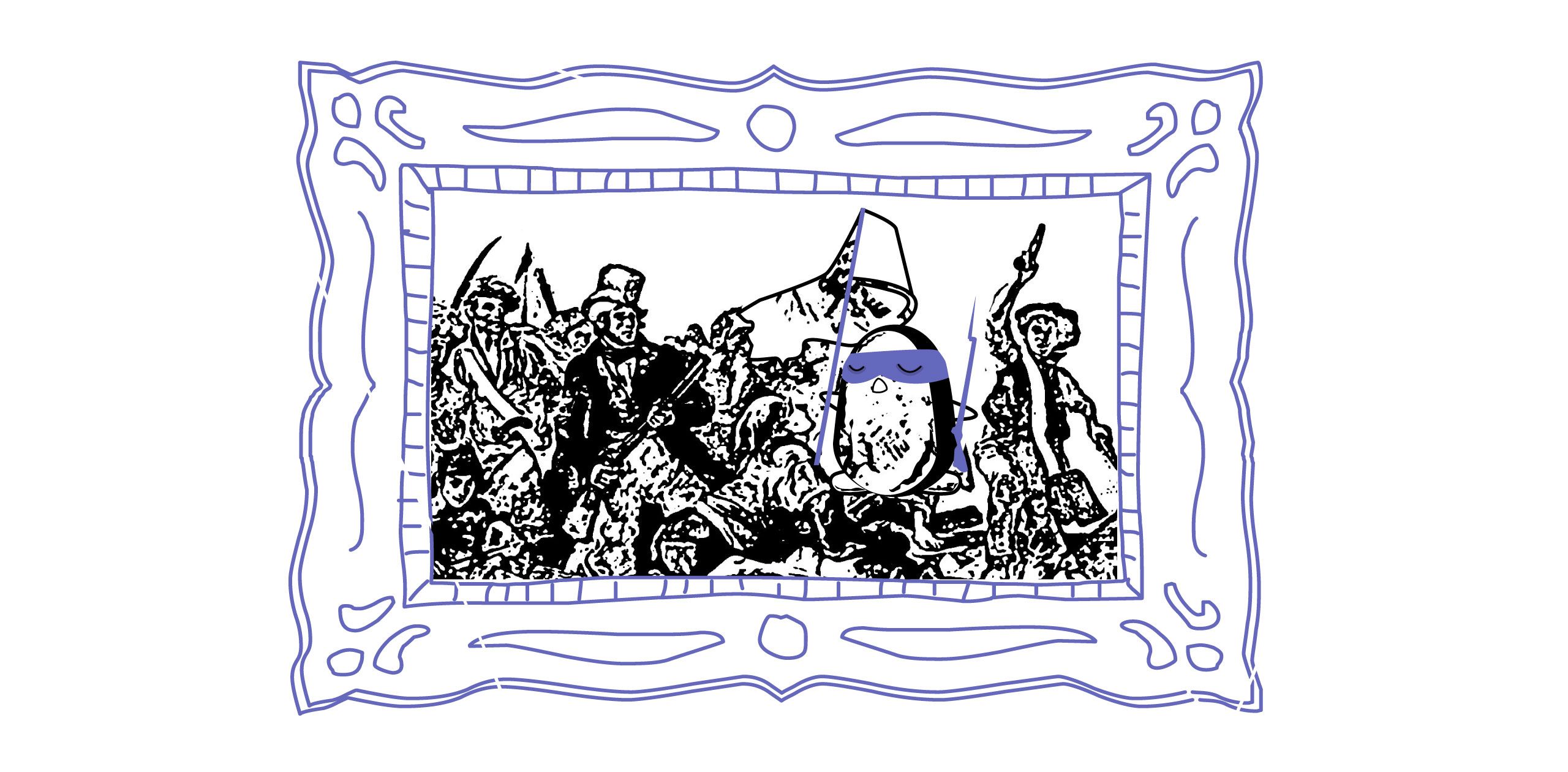
Knowing how to greet someone and introduce yourself is the cornerstone of any language-learning journey. As a French language learner, you may wonder how to ask somebody for their name, especially when meeting them for the first time.
However, even if you are not a beginner and are already familiar with the phrases like Comment vous appelez-vous and Comment tu t’appelles, it can still be overwhelming to figure out the right way to go about it when talking to native French speakers.
In this article, we’ll share some tips on how to ask “What is your name?” in French, along with some useful English-French examples to help you grasp the proper pronunciation and build confidence in your French-speaking skills.
Learn French with Langster
Different Ways to Ask Someone’s Name in French
In French, there are two general ways you can greet someone: formal and informal. So, when you want to say “What Is your name?” in French, it is essential to first understand whether you are addressing someone formally or informally.
If you are talking to someone older, a stranger, or in a professional setting, it is essential to use polite language, as it is customary. You will use vous — the formal form of “you” — to show respect and politeness.
However, if speaking to a younger person, a family member, or a close friend, you can use tu, the informal form of "you."
Remember that vous is always more relaxed and friendly. Typically, in France, it's considered polite to use the latter until the other person addresses you as tu. This approach ensures you don't come across as disrespectful or overly familiar.
Comment vous appelez-vous? (Formal)
When engaging in formal conversation in France, it's important to use the correct language etiquette.
When you are addressing someone formally — for instance, when greeting a new colleague at a business meeting in Paris or interacting (as a student) with a professor for the first time — use the following question to ask their name:
French
English
Comment vous appelez-vous?
What is your name?

Comment t'appelles-tu? (Informal)
On the other hand, when speaking informally, you can use this phrase:
French
English
Comment t'appelles-tu?
What's your name?
Alternatively, you can use this synonymous phrasing:
French
English
Comment tu t'appelles?
What’s your name?
For instance, if you're meeting a peer or the friend of a friend at a social gathering or if you're a student meeting a new classmate, this phrase would be more appropriate.
Comment on t'appelle? (Informal)
This is another phrase used to ask someone's name in French in a more colloquial and relaxed way.
French
English
Comment on t'appelle?
What do people call you?
This phrase is often used in informal and friendly contexts, such as meeting new acquaintances at social events or interacting with younger individuals.
The good news for English speakers is that these phrases are easy to remember, and there is no need to conjugate the verbs or remember any complicated grammar rules for using them.
C'est quoi ton nom? (Informal)
It's important to note that this phrase is very informal and colloquial.
French
English
C'est quoi ton nom?
What's your name?
This phrase translates to "What's your name?" in English, but a more literal translation would be "What is it, your name?"
While C'est quoi ton nom? may not be appropriate in formal or professional situations, it can work well in relaxed, casual settings when speaking with peers, friends, or children. For example, if you're meeting a friend's child, you might ask, C'est quoi ton nom? as a friendly way to learn their name.

Some Alternate French Expressions
In this section, you will find a table of some other ways to ask somebody their name, along with example sentences and brief explanations.
| French Phrase | English Translation | Explanation |
|---|---|---|
| Quel est ton nom? | What is your first name? | This is a direct way to ask for someone's first name. It's used in both formal and informal settings. |
| Quel est votre nom, s'il vous plaît? | What is your name, please? [This is a very polite and formal way to ask someone's name. | |
| Bonjour, je m'appelle Lily, et toi? | Bonjour, my name is Lily, and you? | This is a common way to introduce yourself and ask for someone else's name in return. It's suitable for most social settings. |
| Et toi, tu t'appelles comment? | And you, what's your name? | Similarly, this one is often used in conversations where one person has already introduced themselves and is asking in return. |
| Excuse-moi, je ne suis pas sûr de mémoriser ton nom. | Excuse me, I'm not sure I remember your name. | This is a polite yet straightforward way to ask someone's name if you've forgotten it. It's appropriate for most social situations. |
| French Phrase | English Translation | Explanation |
|---|---|---|
| Quel est ton nom? | What is your first name? | This is a direct way to ask for someone's first name. It's used in both formal and informal settings. |
| Quel est votre nom, s'il vous plaît? | What is your name, please? [This is a very polite and formal way to ask someone's name. | |
| Bonjour, je m'appelle Lily, et toi? | Bonjour, my name is Lily, and you? | This is a common way to introduce yourself and ask for someone else's name in return. It's suitable for most social settings. |
| Et toi, tu t'appelles comment? | And you, what's your name? | Similarly, this one is often used in conversations where one person has already introduced themselves and is asking in return. |
| Excuse-moi, je ne suis pas sûr de mémoriser ton nom. | Excuse me, I'm not sure I remember your name. | This is a polite yet straightforward way to ask someone's name if you've forgotten it. It's appropriate for most social situations. |
It's always essential to gauge the level of formality required in your conversation and choose your phrasing accordingly.

Giving Your Name in French
Just like there are multiple ways to say “What is your name?” in French, there are several ways to tell someone your name — each with its own level of formality and usage context.
Here is a quick guide to help you navigate how to introduce yourself in French:
Je m'appelle…
This phrase translates directly to "My name is…" For example, if your name is Anthony, you would say:
French
English
Je m'appelle Anthony.
My name is Anthony.
This phrase is straightforward and can be used in both formal and informal situations.
Je suis…
This phrase translates to "I am." So, someone called Laurie would say:
French
English
Je suis Laurie.
I am Laurie.
This is another simple and versatile way to tell someone your name in French, suitable for all sorts of social contexts.
Moi c'est…
This is a more casual way to introduce yourself, although it also translates to "I am…"
French
English
Moi c'est Monique.
I am Monique.
This sentence is commonly used by native French speakers, especially in relaxed, informal settings.
Remember: The choice between these phrases depends on the level of formality of your conversation and your personal preference. All of these expressions are commonly used and easily understood by French speakers.

The Bottom Line
Knowing how to introduce yourself and ask someone for their name is a fundamental aspect of any language. As a French language learner, you can use the tips and phrases we've shared in this blog post to help you build confidence in your French-speaking skills.
Remember to use polite language when addressing someone formally and informal language when conversing with a younger person or close friend. Practice using these phrases daily, and over time, you'll sound more natural and comfortable in your French-speaking abilities.
Also, consider downloading our Langster app for more examples of how to use these phrases and other greetings in real-life contexts. Keep practicing, and soon enough, you'll be able to greet people with ease, whether you're in France or anywhere else in the French-speaking world.
Learn French with Langster









